VLADIMIR VLADIMIROVICH VOLODYA MAYAKOVSKY (1893 1930) was born in Georgia on 19 July 1893. Following the death of his father in 1906 he moved to Moscow with his mother and two sisters. At the age of fifteen he became a member of the Bolshevik party, and between 1908 and 1910 was arrested three times for revolutionary activity, and imprisoned for a total of seven months. In 1912 Mayakovsky co-founded the Russian Futurist movement and in 1915, the same year A Cloud in Trousers was first published, he met Lili and Osip Brik, who would become his lifelong friends and, respectively, his lover and muse, and his publisher. Between 1919 and 1922 he produced thousands of agitational posters for the Russian Telegraph Agency (ROSTA) and, in the following year, began to create advertisement posters for state-produced goods including light bulbs, cigarettes, dummies, watches and galoshes. From 1923 to 1925 he co-edited, with Osip Brik, the arts journal LEF (Left Front of Arts), the successor to which (New LEF, 192729) he co-edited with Sergei Tretyakov.
Between 1922 and 1929 Mayakovsky gave lectures and readings in Riga, Paris, Berlin, Prague, Warsaw, Mexico and various cities around the United States, including New York where he fathered a child with Russian migre Yelizaveta Jones (ne Siebert). His daughter Yelena was born on 15 June, 1926 in New York, where she still lives. From the mid-1920s much of Mayakovskys work expressed criticism of those who capitalized on the reintroduction of free trade under Lenins 1921 New Economic Policy, and fought for ways to avoid slipping back into the conditions of pre-revolutionary life. His final works included poems that defended his own commitment to communism a position frequently challenged on the basis of perceived individualism and the incomprehensible aesthetics of many of his works and satirical attacks on the emergence of a new privileged class of high-ranking party members in Stalins increasingly bureaucratic society. The last and most direct of these, the 1930 play The Bathhouse, was scathingly attacked in return by the literary bureaucrats of the state-run press, by whom Mayakovskys subsequent Twenty Years of Work exhibition was almost entirely boycotted. On many occasions throughout his life Mayakovsky had expressed suicidal intentions, and on 14 April, 1930 he shot himself through the heart in his office room in Lubyanka Passage, Moscow.
He is buried in Novodevichy cemetary in Moscow alongside his mother and sisters. ROSY PATIENCE CARRICK was born in the north-west of England in 1982. She is a poet and a Mayakovsky scholar, and runs several regular poetry and cabaret club events in Brighton, where she lives with her daughter Olive. Since 2010 she has co-hosted various festival poetry stages, including Latitude and Glastonbury Poetry & Words. Rosy teaches English literature, poetry and performance skills at schools, universities and community settings around the UK, and is currently writing a PhD thesis on Mayakovsky at the University of Sussex.  First published in 2015 by Enitharmon Press 10 Bury Place London WC1A 2 JL www.enitharmon.co.uk Distributed in the UK by Central Books 99 Wallis Road London E9 5 LN Distributed in the USA and Canada by Independent Publishers Group 814 North Franklin Street Chicago, IL 60610 USA www.ipgbook.com Selection & Introduction Rosy Carrick ISBN: 978-1-910392-16-4 Enitharmon Press gratefully acknowledges the financial support of Arts Council England, through Grants for the Arts.
First published in 2015 by Enitharmon Press 10 Bury Place London WC1A 2 JL www.enitharmon.co.uk Distributed in the UK by Central Books 99 Wallis Road London E9 5 LN Distributed in the USA and Canada by Independent Publishers Group 814 North Franklin Street Chicago, IL 60610 USA www.ipgbook.com Selection & Introduction Rosy Carrick ISBN: 978-1-910392-16-4 Enitharmon Press gratefully acknowledges the financial support of Arts Council England, through Grants for the Arts.
Individuals contribute to sustain the Press through the Enitharmon Friends Scheme. We are deeply grateful to all Friends, particularly our Patrons: Colin Beer, Duncan Forbes, Sean OConnor and those who wished to remain anonymous. British Library Cataloguing-in-Publication Data. A catalogue record for this book is available from the British Library. For Permissions Acknowledgements see Designed in Albertina by Libanus Press and printed in England by Short Run Press For my Olive
and for Yelena
CONTENTS
LIST OF ILLUSTRATIONS
Frontispiece Portrait of Mayakovsky, 1929.

ACKNOWLEDGEMENTS
I am enormously grateful to: Peter Target at Enitharmon, for giving me the opportunity to put this book together and for being so enthusiastic about it throughout the whole process.
Clifton Bancroft, James Burt, George Hyde, Anna Jakab, Sally Jenkinson, Michelle Madsen, Archie Repin and Iryna Sirota-Basso, for their advice and feedback on translations and other things. Adolf Aksyonkin and Alexei Lobov from the Mayakovsky Museum in Moscow, and Keston Sutherland from the University of Sussex, for their invaluable insights, excitement and encouragement not only for this project but for my work on Mayakovsky in general. Yelena Mayakovskaya, for her unwavering support and interest in my work, her kindness and openness, and, above all, her wonderful friendship. All of my family, friends, fellow poets, artists, performers, academics and cut-throat bitches in particular, Olive Carrick and Eleanor Pittman. Frank Cass Cassidy, whose wise words, undeterred by his death in 2005, remain eternally vital to me as a source of strength, hope and inspiration.
EDITORS NOTE
Unless specified otherwise, all the footnotes to individual works are written by their respective translators.
EDITORS NOTE
Unless specified otherwise, all the footnotes to individual works are written by their respective translators.
Footnotes whose information has been sufficiently addressed elsewhere have been removed to avoid repetition. For consistency throughout the collection, American spellings have been brought into line with their standard English counterparts.
INTRODUCTION
In editing this collection, which draws together for the first time all of Mayakovskys key translators into one volume, my aims have been threefold. Firstly, I wanted to present as balanced an overview as possible of the remarkable diversity of Mayakovskys work. Not only did this mean including his lesser-read or rarely translated poems such as For British Workers, The Flying Proletarian and those written for children, but also acknowledging the wider range of his output by including, alongside these poems, material from his lectures, essays and journals, as well as The Russian Futurist Manifesto, the plays have been omitted entirely from this collection, as has Mayakovskys pre-revolutionary poem Man. The themes of religion, alienation, romantic rejection and contempt for the bourgeoisie in this epic poem are reminiscent of those in his slightly earlier work A Cloud in Trousers, as are its kaleidoscopic narrative and fantastically hyperbolic imagery.
However, there has not yet been a translation of Man which captures the explosive power of its Russian original, whereas George Hydes transformative translation of A Cloud in Trousers is an astonishing and powerful work, one which I felt it was important to bring back into print. An interesting phenomenon has developed over the last thirty years or so in Mayakovsky translation. Although the most comprehensive volumes of his works, notably those by Herbert Marshall in 1965 and in particular Dorian Rottenberg in 19857, have long been out of print, The inevitable result of this selective trajectory is that an understanding of the great diversity of Mayakovskys works has been to some extent lost, and, with it, the complexity of his political and social character too particularly with regard to both his status as a Marxist poet and his attitudes towards domesticity and everyday life. My second aim in putting together this collection has been to redirect that trajectory by presenting works that demonstrate a broader and more representative view of the poet. The evidence of Mayakovskys strong engagement with Marxist theory in a significant number of his works You will not find much outright agitprop in this book, he reassures the reader, and for me this is a great shame, particularly as its stated aim is to allow multiple Mayakovskys [to] face themselves in one volume. Not only does a description in these terms reinforce the inaccurate idea that Mayakovsky was, to use Lytle Shaws phrase, an ideological dupe, it also means disregarding a good third of the poets entire output, much of which is playful, witty and deserving of attention.
Next page
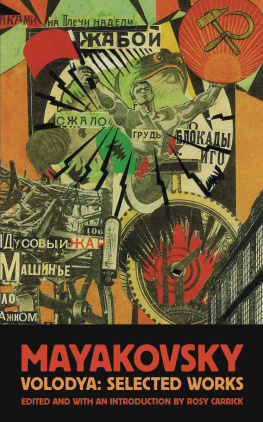
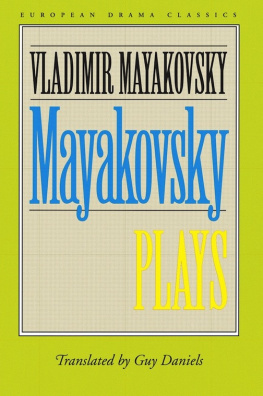


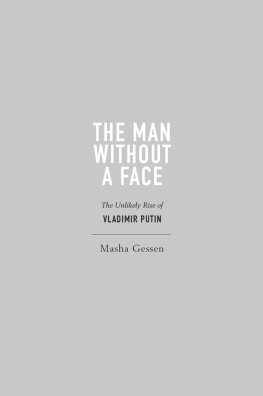
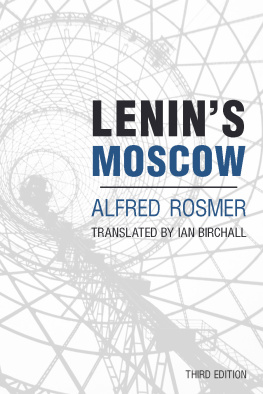
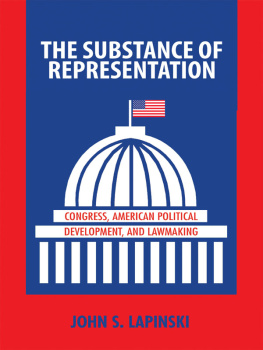
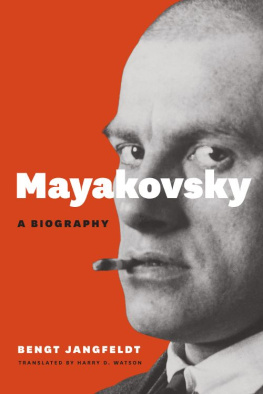
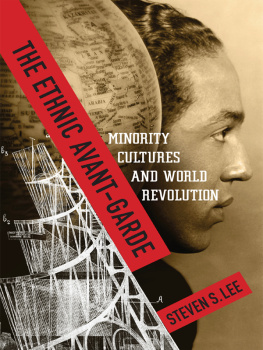
 First published in 2015 by Enitharmon Press 10 Bury Place London WC1A 2 JL www.enitharmon.co.uk Distributed in the UK by Central Books 99 Wallis Road London E9 5 LN Distributed in the USA and Canada by Independent Publishers Group 814 North Franklin Street Chicago, IL 60610 USA www.ipgbook.com Selection & Introduction Rosy Carrick ISBN: 978-1-910392-16-4 Enitharmon Press gratefully acknowledges the financial support of Arts Council England, through Grants for the Arts.
First published in 2015 by Enitharmon Press 10 Bury Place London WC1A 2 JL www.enitharmon.co.uk Distributed in the UK by Central Books 99 Wallis Road London E9 5 LN Distributed in the USA and Canada by Independent Publishers Group 814 North Franklin Street Chicago, IL 60610 USA www.ipgbook.com Selection & Introduction Rosy Carrick ISBN: 978-1-910392-16-4 Enitharmon Press gratefully acknowledges the financial support of Arts Council England, through Grants for the Arts.